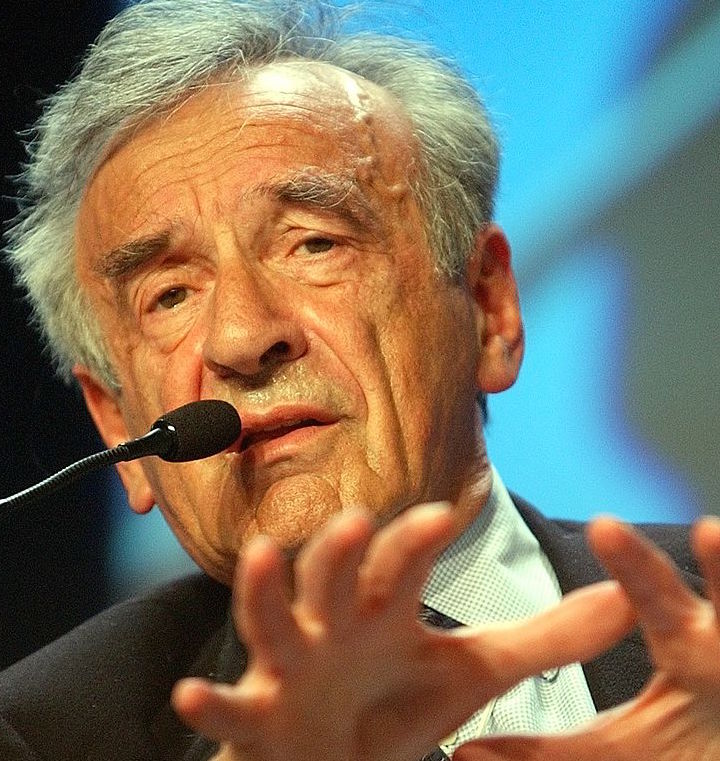Like this article? rabble is reader-supported journalism. Chip in to keep stories like these coming.
I happened to be at the Anne Frank House in Amsterdam this week, a low (formerly) business building fronting a canal. In the “secret annex” there, Frank and her family hid from the Nazis for two years till being informed on. She died in 1945, at 15, in Bergen-Belsen just before its liberation. A family friend and employee rescued Anne’s diary and gave it to her father, who alone survived Auschwitz.
The diary appeared in Dutch in 1947 and in English by 1952. In a way it began “Holocaust literature.” (Polish writer Tadeusz Borowski’s brilliant This Way for the Gas, Ladies and Gentlemen appeared about the same time but not in English till 1958.) Anne’s most enduring, haunting line is, “In spite of everything I still believe people are really good at heart” — scarily challenging words. Is it simply young and naïve? Does it mean something closer to: potentially good? It’s this openness to ambiguity, and so its ability to provoke a lifelong internal dialogue — especially if read while young — that makes the diary a lasting work.
For me the most powerful book on that shelf is also by a young Dutch Jewish woman: An Interrupted Life, by Etty Hillesum, 15 years older than Anne. She too kept a diary, lovingly. She too went into the camps but in her case, as a volunteer! She had a rare permit to remain in Amsterdam but chose to “serve” those she loved who’d already been interned.
She wasn’t ascetic or martyr-like, she was vital and sexual. She had a theological bent historically more familiar in Catholic women than in Jews and communed with God (as she understood God) constantly. She wasn’t passively religious: “If God won’t help me, I’ll have to help God.” She too died in Auschwitz, in 1943, at 29. Her hope and faith — “I believe in God and I believe in man and I say so without embarrassment” — seem much like Anne’s, though infinitely more adult and reflective.
Which brings us, roundabout, to Elie Wiesel, who died this month, also an Auschwitz survivor, author and Nobel Peace Prize laureate. He’s been called, by admirers, the high priest of the Holocaust, which he declared “unique, not just another event … the ultimate event, the ultimate mystery.” This led Wiesel to argue for excluding LGBTQ people or Roma from the U.S. Holocaust museum, and to deny the Armenian “genocide” until late in life.
For Hillesum, on the contrary, “there will always be suffering, whether from this or from that doesn’t make much difference.” What a contrast. For her, the crux was to serve: in her beloved room, at her desk where she wrote, or in the barracks. Of course she didn’t live to see the full effect of the Holocaust but she clearly sensed it. I’d say we’re fortunate to have both their deeply divergent views available to us.
But it’s Wiesel’s later role as a moral pillar, a beacon/icon paid homage by world leaders, that’s troubling. It’s interesting that pro-Israel (or at least not anti-Israel) critics of Israel, such as American Jews Peter Beinart or Max Blumenthal, didn’t hesitate to critique Wiesel even moments after his death. They objected to his refusal to raise questions about anything done by Israel’s governments (“I must identify with whatever Israel does — even with her errors”) and about his full-throated support for U.S. wars endorsed by Israel against Iraq or Libya, and his opposition to a U.S. peace with Iran.
As recently as two years ago, Wiesel called Israel’s attacks on Gaza, which killed hundreds of children, entirely the fault of Hamas, who were practising “child sacrifice” and “barbarism.” His inevitably lofty moral justifications for these actions rang … dubiously.
Wiesel’s last years were difficult. He’d put his considerable millions — his foundation’s and his own, into Bernie Madoff’s hands. When the scam imploded, he lost it all.
Bitterly and in extremis, he turned for support to the casino baron, Sheldon Adelson, who more or less owns Israel’s Netanyahu government and receives regular begging missions from Republican politicians.
This led Wiesel to grant his moral imprimatur to Adelson favourites, such as Rwandan autocrat Paul Kagame, who abetted, says Human Rights Watch, “atrocities” in the Congo. It was a sad end, not to Wiesel’s role as witness to the Holocaust, but as the planet’s conscience. He was the beacon, you might say, that lost its way.
This column was first published in the Toronto Star.
Photo: Sebastian Derungs/World Economic Forum/Wikimedia Commons
Like this article? rabble is reader-supported journalism. Chip in to keep stories like these coming.



